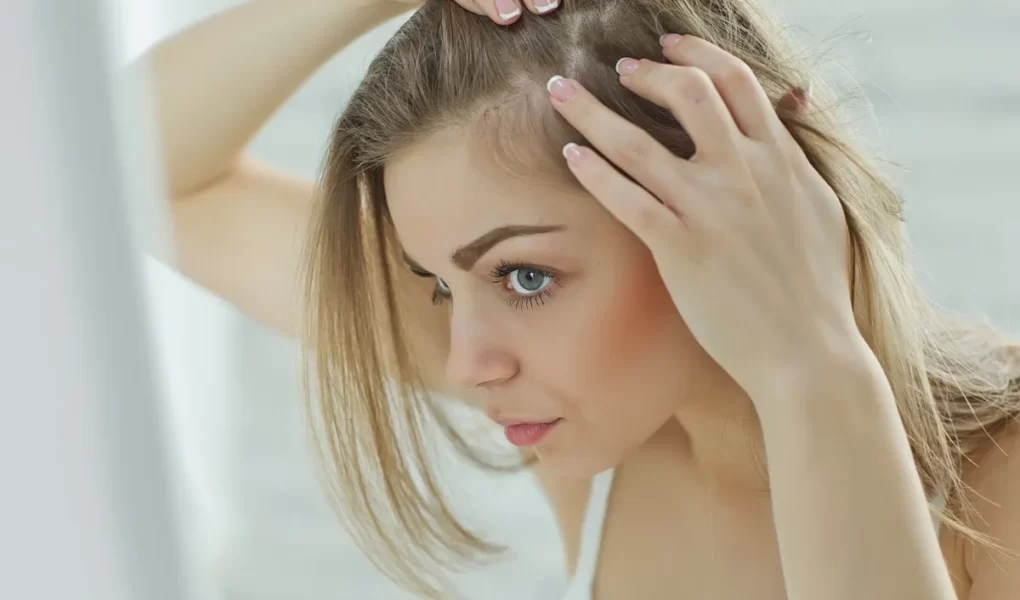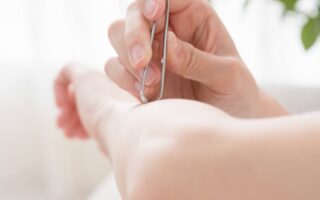Spironolactone is a medication commonly prescribed to treat various conditions, such as hypertension, heart failure, and hormonal imbalances, including polycystic ovary syndrome (PCOS). While it is generally considered safe and effective, one of the reported side effects of spironolactone is hair loss.
Hair loss is a common concern for many people, and it can be distressing to experience. It can also be challenging to determine the cause of hair loss, as there are numerous factors that can contribute to it. In this blog post, we will explore whether spironolactone causes hair loss on the head and what you can do about it.
Table of Contents
Understanding Spironolactone
Spironolactone is a medication that belongs to a class of drugs known as aldosterone antagonists. It works by blocking the effects of aldosterone, a hormone that regulates the balance of sodium and potassium in the body. By blocking aldosterone, spironolactone can lower blood pressure and reduce fluid buildup in the body, making it useful in treating conditions such as hypertension and heart failure.
Spironolactone is also used off-label to treat hormonal imbalances, such as PCOS. In PCOS, the body produces excessive amounts of androgens, or male hormones, which can lead to a range of symptoms, including acne, weight gain, and excess hair growth. Spironolactone can help to block the effects of androgens, reducing these symptoms.
Hair Loss and Spironolactone
While spironolactone can be an effective treatment for PCOS and other hormonal imbalances, one of the reported side effects of the medication is hair loss. However, it is essential to note that not everyone who takes spironolactone will experience hair loss, and the severity of the hair loss can vary from person to person.
The exact mechanisms by which spironolactone can cause hair loss are not entirely understood. One theory is that the medication can interfere with the production of androgens, which can impact hair growth. Androgens are involved in the regulation of hair growth, and excessive amounts of androgens can lead to conditions such as male-pattern baldness and hirsutism (excessive hair growth). By blocking the effects of androgens, spironolactone can reduce these symptoms but may also impact hair growth on the head.
Another theory is that spironolactone can lead to an imbalance in electrolytes, such as potassium and sodium, which can impact hair growth. Electrolytes play a crucial role in the growth and maintenance of hair, and imbalances can lead to hair loss.
What to Do About Hair Loss While Taking Spironolactone
If you are experiencing hair loss while taking spironolactone, there are several things you can do to address the issue:
-
Speak with Your Doctor
If you are experiencing hair loss while taking spironolactone, it is essential to speak with your doctor. They can help you determine the underlying cause of the hair loss and recommend appropriate treatment options.
-
Consider Changing Your Medication
If your hair loss is severe or is impacting your quality of life, your doctor may recommend changing your medication. There are several alternative treatments available for conditions such as PCOS, and your doctor can help you find a medication that is effective and has minimal side effects.
-
Try Hair Growth Products
There are several hair growth products available over-the-counter that can help to promote hair growth and reduce hair loss. These products typically contain ingredients such as minoxidil, biotin, and keratin, which can strengthen hair and encourage growth.
-
Make Lifestyle Changes
In some cases, making lifestyle changes can help to reduce hair loss while taking spironolactone. For example, reducing stress levels, eating a healthy diet, and getting regular exercise can all help to promote hair growth and reduce hair loss.
-
Use Hair Care Products with Care
When experiencing hair loss, it is essential to use hair care products that are gentle on the scalp and hair. Avoid using products that contain harsh chemicals, such as sulfates and alcohol, as these can damage the hair and scalp and worsen hair loss.
-
Consider Supplementing Your Diet
There are several vitamins and minerals that are essential for healthy hair growth, including biotin, vitamin D, and iron. If your hair loss is due to a nutrient deficiency, your doctor may recommend supplementing your diet with these nutrients to promote hair growth.
Conclusion
While spironolactone can be an effective treatment for conditions such as hypertension and PCOS, one of the reported side effects of the medication is hair loss. If you are experiencing hair loss while taking spironolactone, it is essential to speak with your doctor, who can help you determine the underlying cause of the hair loss and recommend appropriate treatment options.
In some cases, switching to an alternative medication or making lifestyle changes can help to reduce hair loss while taking spironolactone. Additionally, using gentle hair care products and supplementing your diet with essential vitamins and minerals can help to promote healthy hair growth. By taking these steps, you can reduce the impact of hair loss and promote healthy, beautiful hair while taking spironolactone.




